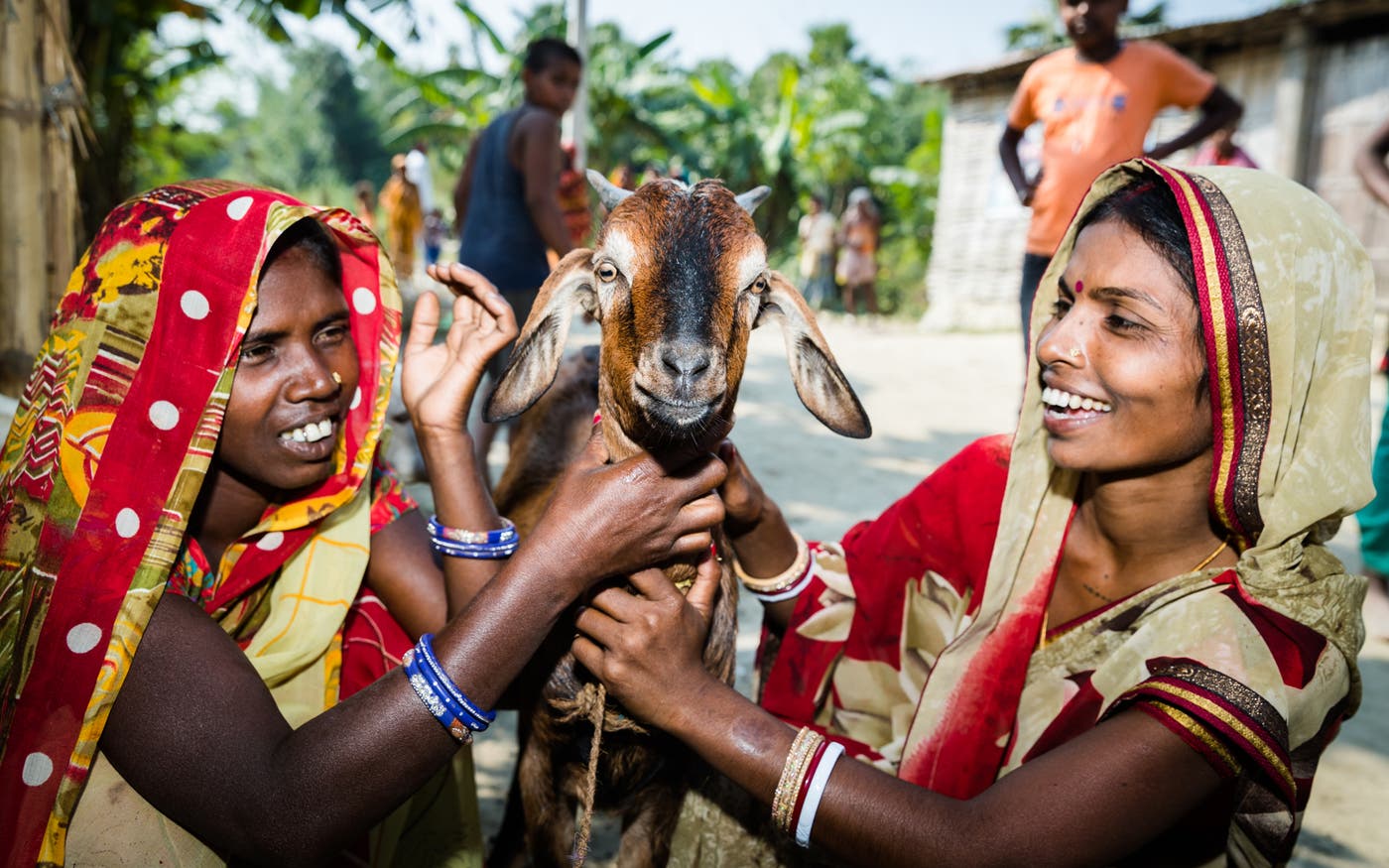
No kidding
Can goats empower women?
A group of Indian health workers is helping poor women gain financial independence by raising goats.

Can goats empower women?
In one of the poorest areas of India, they already are.
This is thanks to a new team of health workers who are training rural women how to gain financial independence by raising healthier goats.
The health workers are goat nurses known as “pashu sakhis,” which means “friends of the animals” in Hindi. Pashu sakhis are all poor women themselves who are given basic training in how to vaccinate, deworm, and provide other preventive care to goats in their community.
So, how does this help empower women?
In India’s poorest rural families, goat rearing is an important source of income. Goats can be sold easily because they are always in demand as a source of food. In fact, goats are nicknamed “ATMs” because of they are a convenient source of cash.
Unlike more valuable operations on farms in India—crops or cattle, for example—goats are managed almost exclusively by women. They bring them out for grazing, take care of them when they’re ill, and sell them at the market.
And here’s the most critical point—the money women earn from their goats stays in their hands. With more control of their finances, women not only improve their status within the homes, but they also have greater ability to make decisions and have greater power over their own lives. Study after study shows that when women have cash, they will spend it on things that improve the quality of life for their family. That means more money for buying food to improve nutrition, schooling for children, visiting a doctor, or even building a toilet.
India has more than 135 million goats—one-sixth of the world’s goat population. And more than 70 percent of poor, rural families raise them. So, there is huge potential for goats to help boost women’s empowerment. But that potential has not been fully realized. Because of a lack of access to veterinary services in India, mortality rates for goats are as high as 40 percent. And ill or low-weight goats fetch lower prices in the marketplace.
That’s why the pashu sakhis are so important. They are filling a gap in these veterinary services to help improve the health of the goats. Through a program called Project Mesha run by the Aga Khan Foundation and supported by our foundation, more than 200 women are being trained to be pashu sakhis in four communities in the Indian state of Bihar. Bihar is one of the poorest states in India and has one of the country’s largest populations of goats. Working through local women’s groups, the program aims to increase incomes for 50,000 of India’s poorest women by 30 percent.
A key part of the project is to ensure that the pashu sakhis are empowered themselves. They charge small fees for their veterinary services, which provide them with a source of income and a financial incentive to promote goat care in their communities. In Bihar, local culture allows husbands to place tight restrictions on their wives’ mobility and decision-making power. But as pashu sakhis earn more income from their goat services, they say they are also gaining more respect and independence from their husbands.
While this project is still small, it has potential for huge impact for poor women in India. The Aga Khan Foundation is working with the government of Bihar to expand the program in other districts in the state.
At our foundation, we want to see more women’s empowerment projects like this one. That’s why last year we launched a new strategy focused on gender equality, which focuses on removing the barriers to equality that women and girls face so they too may live a healthy, happy, and economically productive future.
Unless we all push for greater equality, women will not have the opportunity to reach their full potential, nor will the communities where they live. Thanks to the incredible work of the pashu sakhis, thousands of women in India will now have an opportunity to break out of poverty and exercise greater power over their lives.


